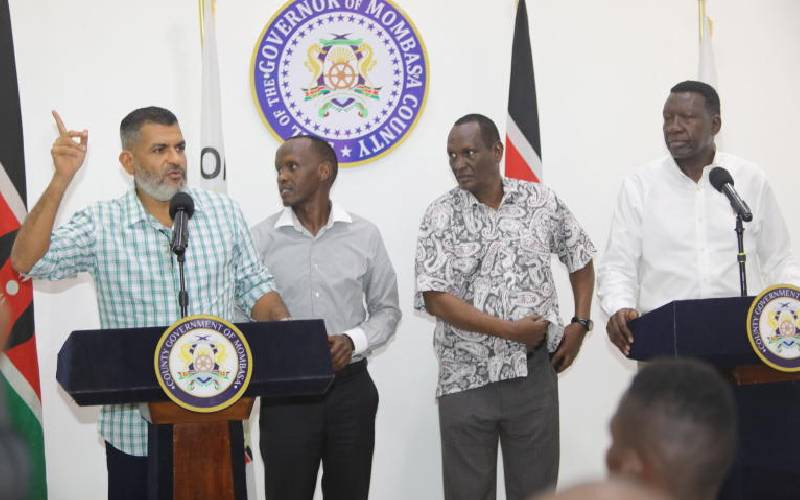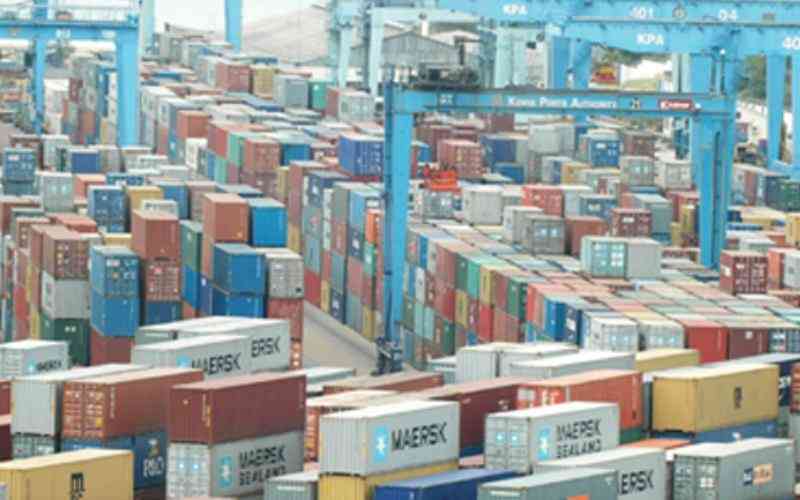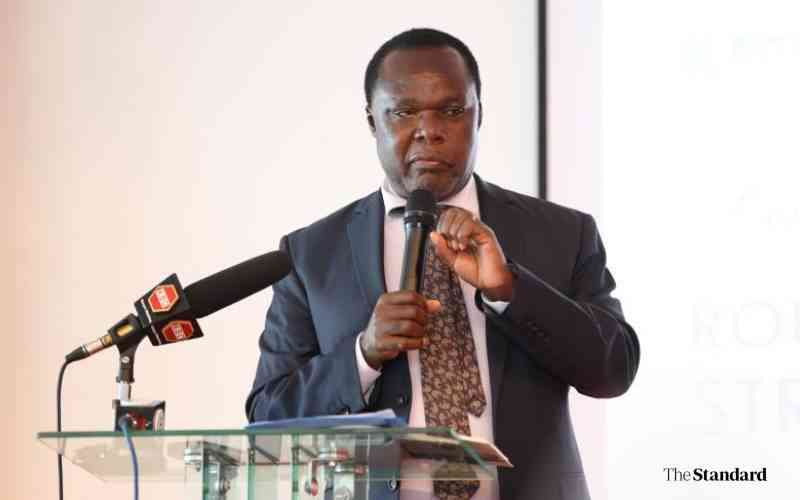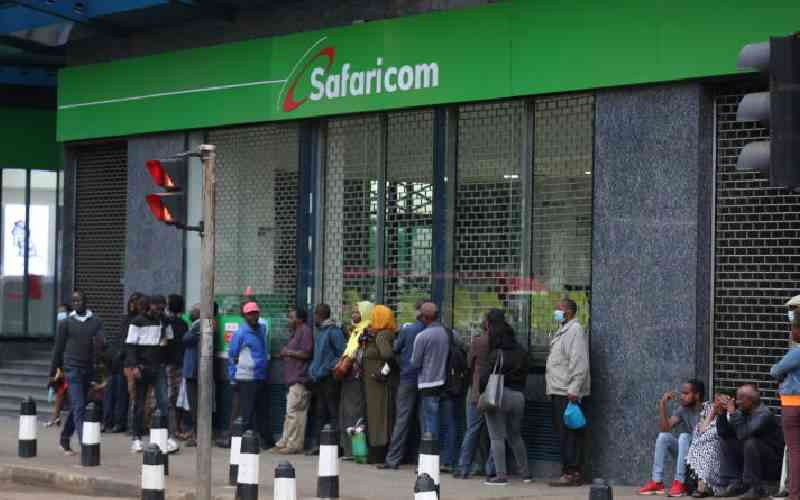Mombasa Governor Abdulswamad Shariff Nassir (left) and Energy and Petroleum CS Davis Chirchir (right) at the governor's office in Mombasa on Wednesday, August 30, 2023, during a meeting over Kenya Pipeline Company's plan to take over assets of Changamwe-based Kenya Pipeline Refineries Limited. Also present at the meeting was KPC managing director Joe Sang (second left), among other officials. [Kelvin Karani, Standard]
×
The Standard e-Paper
Join Thousands Daily











